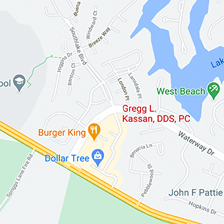What is biofilm?
November 8th, 2023

Biofilm, the protective housing for bacteria, is a hot topic in the medical and dental fields. Routinely taking an antibiotic for a bacterial infection has become more complicated because of biofilm. Bacterial infections may become resistant to antibiotics in part because the biofilm allows for communication among the bacteria, allowing the infection to be sustained.
You’re probably wondering, Dr. Kassan , what does this have to do with teeth? Since we’re dental professionals, we can tell you why it’s important and what you should know! There is biofilm in your mouth; healthy biofilm and diseased biofilm. Both are made of the same general compounds, but when combined with certain amino acids and cellular chemicals, the diseased biofilm conquers and destroys.
Periodontal disease, otherwise known as gum disease or pyorrhea, is a biofilm disease. If you are undergoing treatment for gum disease and you do not continue with the treatment plan the disease will progress and/or spread due to the biofilm.
There are several ways to treat diseased biofilm. But remember, antibiotics cannot touch the bacterial infection if the biofilm is established.
When your exam is complete, the Ultrasonic or Piezo Scaler should be used. This method of spraying water disturbs the biofilm and provides an opportunity to treat the infection causing bacteria.
Remember, we all need healthy biofilm. Just as your skin protects your body, biofilm housing good bacteria protects your body. The bacteria in the biofilm replicate every twenty minutes. If your body has healthy bacteria, low levels of hydrogen peroxide are produced by the biofilm, preventing harmful bacteria from residing. Harmful bacteria do not like oxygen.
At your exam, we will take measurements around your teeth checking for “pockets”. The higher the number, the deeper the pocket giving more room for harmful bacteria where there is no oxygen. Ask what your numbers are and be involved in restoring your healthy biofilm.




